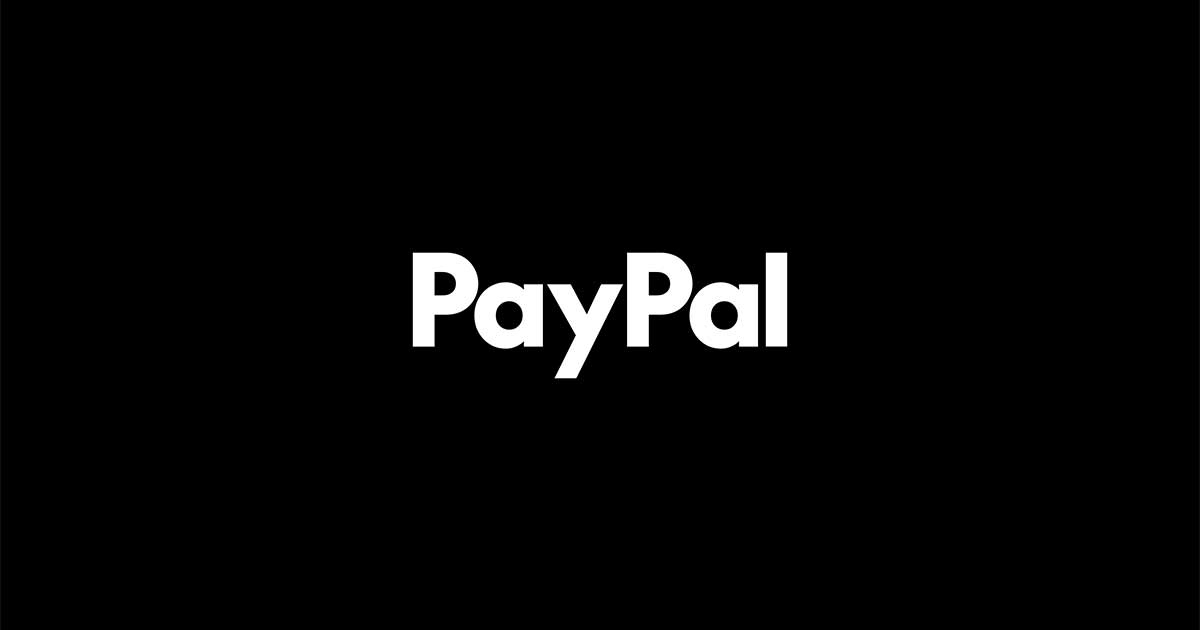PayPal stands as one of the most recognized names in digital payments, with a history dating back to 1998 when it emerged as one of the pioneers of online payment processing. Now a global financial technology giant, PayPal has evolved from its origins as a simple way to send money via email into a comprehensive payment platform serving over 400 million active accounts worldwide.
We provide an in-depth analysis of PayPal as a payment processor for merchants, examining its offerings, fee structure, ease of implementation, and overall value proposition for different types of businesses. Whether you’re a small business owner considering your first payment processor or an established merchant evaluating alternatives, this guide will help you understand what PayPal offers and whether it aligns with your business needs.
Core Offering & Key Features
PayPal’s service offerings have expanded significantly over the years, creating a diverse ecosystem of payment solutions:
Payment Processing Capabilities
PayPal supports a wide range of payment methods, including:
- Credit and debit cards (all major networks)
- PayPal balance payments
- PayPal Credit (buy now, pay later option for customers)
- Venmo (in supported markets)
- Digital wallets (including Google Pay and Apple Pay)
- Local bank transfers
- Pay in 4 installment options
- Support for over 100 currencies
A key differentiator for PayPal is that it functions both as a payment processor and a digital wallet. This means businesses gain access not only to traditional card payments but also to PayPal’s massive user base who prefer to pay directly with their PayPal accounts.
Checkout Solutions
PayPal offers several implementation options for businesses:
- PayPal Checkout: The standard integration offering dynamically presented payment options
- PayPal Buttons: Simple, recognizable buttons for websites with minimal integration needs
- Braintree: Full-service payment platform for more customized checkout experiences
- PayPal Commerce Platform: Comprehensive solution combining multiple PayPal products
- Payflow Gateway: Payment gateway for merchants with existing merchant accounts
These varied options allow businesses to choose implementations matching their technical capabilities and customization requirements.
Subscription & Recurring Billing
For businesses operating on subscription models, PayPal offers:
- Standard recurring billing tools
- Subscription plan management
- Trial period options
- Automatic retries for failed payments
- Subscription cancellation and management interfaces
While functional, PayPal’s subscription management features are generally less sophisticated than specialized subscription processors like Stripe.
Additional Services & Products
PayPal has expanded its ecosystem to include:
- PayPal Working Capital: Business loans based on sales history
- PayPal Zettle: Point-of-sale solution for in-person payments
- PayPal Business Debit Card: Card access to PayPal balance funds
- Invoicing Tools: Creation and management of professional invoices
- Shipping Solutions: Discounted labels and shipping management
- Marketing Tools: Basic customer communications and offers
This broader ecosystem makes PayPal more than just a payment processor for many small businesses, serving as a comprehensive financial management platform.

Fee Structure & Pricing
PayPal’s pricing structure varies across its different products and payment types:
Standard Transaction Fees
- Online transactions: 2.99% + $0.49 per transaction
- PayPal Checkout transactions: 2.59% + $0.49 per transaction
- QR code transactions: 1.90% + $0.10 for transactions above $10
- In-person transactions: 2.29% + $0.09 using PayPal Here/Zettle readers
- Nonprofit discount: 2.2% + $0.30 for qualified organizations
- Micropayments: 4.99% + $0.09 (for transactions under $10)
- International transactions: Additional 1.5% cross-border fee
- Currency conversion: 3-4% above base exchange rate
Account Types & Monthly Fees
- Standard PayPal Business account: No monthly fee
- PayPal Payments Pro: $30 monthly fee for additional features like virtual terminal
- Payflow Pro: $25 monthly fee plus $0.10 per transaction
Volume Discounts
Merchants processing more than $100,000 annually may qualify for PayPal’s merchant rate pricing with reduced percentage fees based on monthly volume:
- $100,000-$1,000,000/year: Rate reduction of approximately 0.2-0.3%
- Over $1,000,000/year: Custom negotiated rates
Pricing Analysis
- No monthly fees for standard accounts
- No setup costs or long-term contracts
- No PCI compliance fees or statement fees
- Consolidated payment processing with minimal setup
For small businesses or those just starting out, the absence of monthly fees and the simplicity of setup can offset the slightly higher per-transaction costs, particularly when transaction volumes are low or inconsistent.

Technical Implementation & Integration
PayPal offers multiple integration approaches with varying degrees of complexity and customization:
Basic Implementation Options
- Standard PayPal Buttons: Simple copy-paste HTML snippets
- Payment Links: No-code, shareable payment URLs
- QR Codes: Displayable codes for in-person touchless payments
- PayPal Checkout with Smart Payment Buttons: Dynamically displayed relevant payment options
- Email Invoicing: No integration needed for basic invoice payments
Advanced Integration Options
- Direct API Integration: Complete control using REST APIs
- SDK Implementation: Libraries for major programming languages
- Braintree Integration: More sophisticated customization options
- Server-side Integration: Enhanced security and control
Platform Plugins & Extensions
- Shopify
- WooCommerce
- Magento
- BigCommerce
- Wix
- Squarespace
- WordPress
- And many others
Developer Resources
- API documentation with examples
- SDK libraries for major programming languages
- Developer forums and community
- Testing sandbox environment
- Integration wizards and guides

User Experience & Dashboard
Dashboard Capabilities
- Transaction monitoring and history
- Fund management and transfers
- Customer management
- Invoice creation and tracking
- Basic sales reporting and analytics
- Account settings and security controls
- Access to additional PayPal products and services
Reporting Features
- Transaction history with filtering options
- Monthly and custom date range summaries
- Sales reports by item or customer
- Downloadable reports in CSV format
- Integration with accounting software
- Tax documentation and reporting
Mobile Management
- Monitor sales activity
- Send invoices
- Process in-person payments
- Manage customer issues
- Transfer funds
- Respond to customer disputes

Security & Compliance
Data Security
- PCI DSS compliance
- End-to-end encryption
- Tokenization of sensitive data
- Fraud monitoring systems
- Account activity monitoring
- Two-factor authentication options
Seller Protection Program
- Unauthorized transaction claims
- Item not received claims
- Certain chargeback types
Buyer Protection Program
Compliance Features
- GDPR compliance tools
- Strong Customer Authentication for European transactions
- Tax calculation support
- 1099-K reporting for applicable merchants

Customer Support & Resources
Support Options
- Online help center with extensive FAQs
- Community forums for peer assistance
- Email support
- Chat support
- Phone support
- Message center within the account dashboard
- Resolution center for transaction issues
Additional Resources
- PayPal Business Resource Center with guides and articles
- Webinars and educational content
- Video tutorials
- Business guides for specific industries
Strengths & Advantages
Brand Recognition & Trust
Ease of Implementation
Built-In Customer Base
All-in-One Solution
No Long-Term Commitments
Limitations & Considerations
Higher Transaction Costs
Less Customization Flexibility
Account Stability Concerns
Customer Service Variability
International Limitations
Ideal Use Cases
Small Businesses & Startups
Occasional Sellers
Multi-Channel Sellers
International Sellers (in Supported Markets)
Nonprofits & Fundraising
Conclusion
PayPal continues to hold a prominent position in the payment processing landscape due to its accessibility, brand recognition, and comprehensive service offering. Its greatest strengths lie in its simplicity of implementation and the trust it engenders among consumers, making it particularly valuable for small businesses, new merchants, and those with limited technical resources.
While its transaction fees are higher than some competitors, the total value proposition—including no monthly fees, minimal setup requirements, and access to PayPal’s massive user base—can make it cost-effective for many business scenarios, particularly those with lower or inconsistent transaction volumes.
For businesses seeking the absolute lowest transaction costs or requiring highly customized payment flows, alternative processors may offer advantages. However, many merchants find that offering PayPal as one of multiple payment options provides the best results, capturing customers who specifically prefer the PayPal experience.
Ultimately, PayPal’s longevity in the rapidly evolving payments space speaks to its continued relevance. While newer competitors have introduced innovations in specific areas, PayPal’s combination of accessibility, comprehensive features, and consumer trust ensures it remains a viable payment processing option for businesses of all sizes, particularly those prioritizing simplicity and wide market acceptance.

